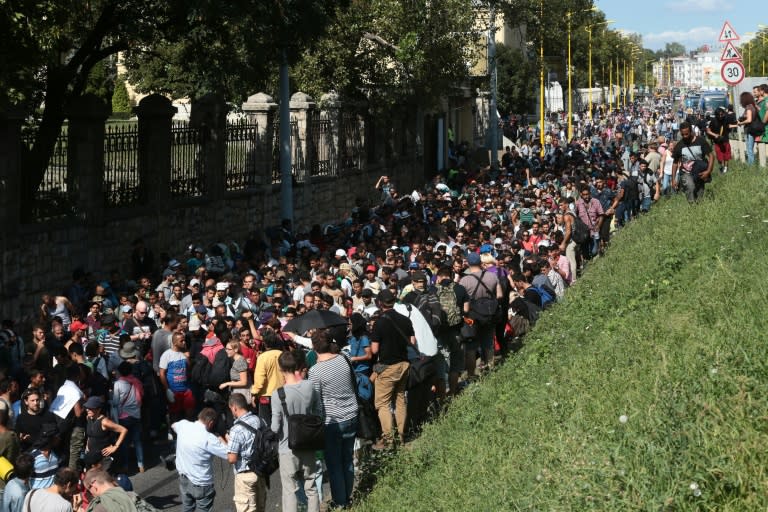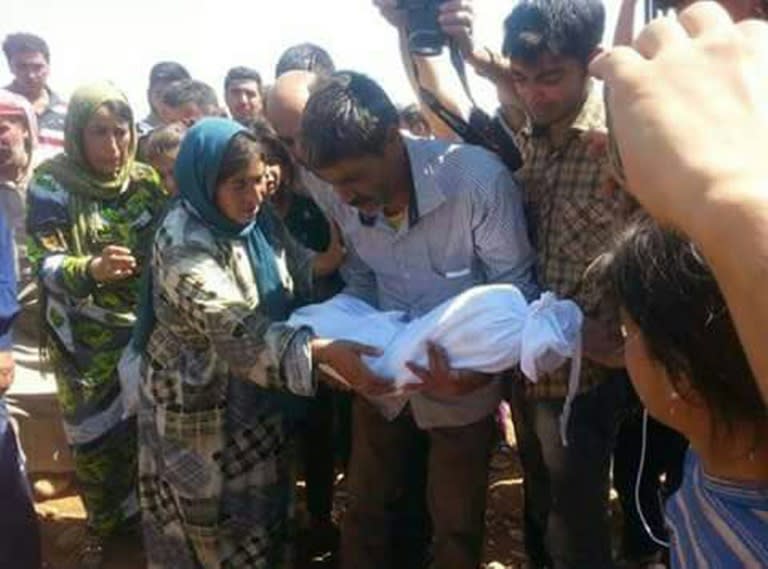Key dates in Europe's escalating migrant crisis
A heartrending photo of a Syrian child who drowned off Turkey; hundreds of migrants stuck in Hungary, barred by police from continuing their odyssey to northern Europe. These are just the latest developments in the EU's worst refugee crisis since World War II. Around 350,000 migrants and refugees have risked their lives since the beginning of the year making the treacherous crossing across the Mediterranean to Europe, with 2,643 dying in the process, according to the International Organization for Migration. Here are key dates in the crisis: - April 23: EU leaders triple the bloc's budget for sea rescues and mull military action against human smugglers in Libya after 1,200 migrants drown in a single week off Libya. But with no UN mandate to intervene against the smugglers, a new naval task force is restricted to surveillance. - June 3: The number of migrants trying to reach Europe through Greece is up 500 percent over 2014, EU border agency Frontex says, largely due to a surge in Syrians crossing from Turkey. - June 17: Hungary closes its border with Serbia, which is not an EU member, and in July begins to build a fence along the length of the frontier. A razor-wire barrier is completed on August 29. - July 20: EU leaders agree to a voluntary scheme to accept 32,256 migrants from Italy and Greece, falling short of a target of 40,000. - July 30: A migrant in Calais, France, is the 10th to die in two months while trying to smuggle across the Channel to England. On several consecutive nights, hundreds of migrants attempt unsuccessfully to storm the Eurotunnel terminal. - August 10: The European Commission approves 2.4 billion euros in aid for countries most affected by the migrant crisis. - August 18: Frontex reports that the number of migrants who reached Italy between January and July tripled from the same period a year earlier to 107,000. The number of migrants arriving via Greece is around double that number. - August 19: Germany, the leading destination for those seeking asylum in the EU, says it expects to receive 800,000 applications by the end of 2015, four times as many as 2014. - August 20: Macedonia declares a two-day state of emergency and temporarily closes its border with Greece after receiving a wave of migrants. - August 23-24: Police and far-right militants clash outside a new refugee centre in Saxony, eastern Germany. - August 27: The decomposing bodies of 71 Syrian migrants are found in an abandoned lorry in Austria. A day earlier, 52 corpses were found in the hold of a boat off Libya. - September 2: The photograph of a three-year-old Syrian boy's body, which washed up on a Turkish beach after a migrant boat sank, shocks the world and leads to a clamour for more accommodating refugee policies. - September 3: Budapest's main international station is reopened to migrants after a two-day closure and standoff. Hundreds board a train headed for towns near the Austrian border but another standoff ensues when police stop the train outside Budapest and try to move the occupants to a refugee processing camp. German Chancellor Angela Merkel and French President Francois Hollande agree on the need for binding migrant quotas per EU country.

 Yahoo Finance
Yahoo Finance 

